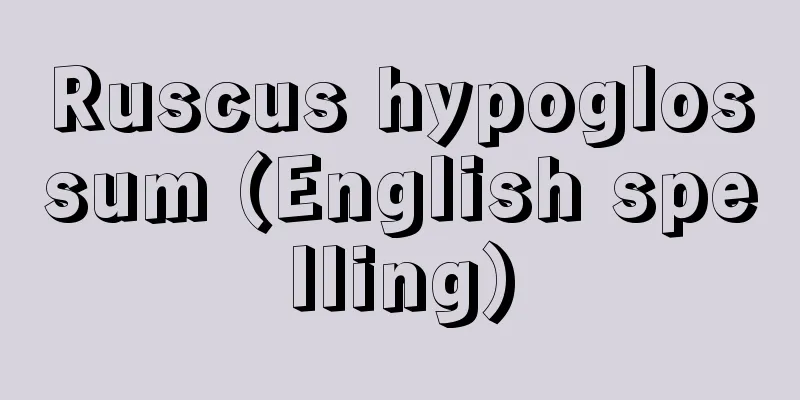Legal aid - Houritsufujo

|
A public assistance system for those who lack financial means and cannot receive legal protection through trials or other legal means. Article 32 of the Japanese Constitution stipulates the "right to access to justice," and the national system for providing public assistance for this right includes legal aid in litigation (Article 82 and subsequent Articles of the Civil Procedure Code), the system of publicly appointed defense attorneys in criminal cases (Article 37, paragraph 3 of the Constitution, Article 36 and subsequent Articles of the Criminal Procedure Code), and civil legal aid under the Comprehensive Legal Support Act (Act No. 74 of 2004). The Legal Aid Association, a foundation established in 1952, provides civil legal aid in the form of paying attorney's fees in advance, as well as assistance with accompaniment to juvenile cases (started in 1973, same below), legal aid for refugees (1983), assistance for obtaining Japanese nationality for orphans left behind in China (1986), and assistance for the defense of criminal suspects (1990). From 1989, government subsidies were increased, and a significant expansion of legal aid was considered, as it essentially guarantees the "right to a trial." As a result, the Civil Legal Aid Act (Act No. 55 of 1990) was enacted for civil matters in 2000 (implemented in October of the same year). This act stipulated the government's responsibilities for legal aid, and government subsidies were significantly increased. Subsequently, in 2004, the Comprehensive Legal Support Act (Act No. 74 of 2004) was enacted (the Civil Legal Aid Act was abolished), and the Japan Legal Support Center (nicknamed Ho-Terasu), an independent administrative institution, was established under this act (Ho-Terasu was launched in October 2006). The Comprehensive Legal Support Act stipulates basic matters for the implementation and establishment of a system for comprehensive legal support (comprehensive legal support) to make it easier to use the systems for resolving disputes through trials and other legal means and to make the services of lawyers and other legal professionals more readily available. It also stipulates the organization and operation of the Japan Legal Support Center, which will be the core of this system. The main functions of the Legal Support Center are (1) providing information on law and the judicial system, (2) civil legal aid, (3) ensuring a system for selecting public defenders, (4) measures to combat judicial underpopulation, (5) support for crime victims, and (6) ensuring and strengthening cooperation between the state, bar associations, ADR (alternative dispute resolution) organizations, etc. Civil legal aid operations were transferred from the Legal Aid Association to the Japan Legal Support Center. In addition, the "Responsibilities of the State," "Responsibilities of Local Governments," and "Responsibilities of the Japan Federation of Bar Associations, etc." were established. Civil legal aid for citizens without financial means includes the advancement of expenses necessary for the preparation and pursuit of civil court procedures, such as attorney's fees in civil cases, the advancement of expenses for document preparation for civil courts, etc., and free legal consultations, and it is particularly important that a system of lawyers for consultations was established. As a result, the Legal Support Center became able to provide "legal consultations anywhere in the country," "legal consultations in areas with a legal shortage," and "consultations for foreigners," and furthermore, "Judicial Scrivener General Consultation Centers" were established throughout the country. [Yoshinobu Homma] "History and Outlook of Legal Aid" (1982), edited and published by the Legal Aid Association ; "Basic Issues in Legal Aid" (1992), edited and published by the Legal Aid Association; "Legal Aid Systems in Each Country" (1996, Bar Association) ; "Legal Aid Association, edited and supervised by Miyazawa Setsuo, "Legal Aid in Asia: With Public Interest Lawyer Activities and Clinical Legal Education" (2001, Gendaijinbunsha, Daigaku Tosho) ; "Legal Aid Association, edited and published, "Legal Aid in Japan: 50 Years of History and Issues" (2002) ; "Outline of Judicial System Reform 5: Comprehensive Legal Support Act/Laws Related to Legal Professional Training" by Furukuchi Akira (2005, Shojihomu) ; "Citizens and the Judiciary: The Significance and Issues of Comprehensive Legal Support" (2007, Edix); [References] | | | |Source: Shogakukan Encyclopedia Nipponica About Encyclopedia Nipponica Information | Legend |
|
経済的資力に乏しく、裁判その他の法律上の保護を受けられない者に対する公的援助制度。日本国憲法第32条は「裁判を受ける権利」を規定しており、これを公的に援助する国家的制度として、訴訟上の救助(民事訴訟法82条以下)、刑事訴訟における国選弁護人の制度(憲法37条3項、刑事訴訟法36条以下)、総合法律支援法(平成16年法律第74号)による民事法律扶助がある。 1952年(昭和27)に設立された財団法人法律扶助協会が、弁護士費用等の立替えという形で民事法律扶助を、さらに、少年保護事件付添援助(1973年度から開始、以下同じ)、難民法律援助(1983)、中国残留孤児国籍取得支援(1986)、刑事被疑者弁護援助事業(1990)等を行ってきた。1989年度(平成1)からは、国庫補助金も増額され、法律扶助は「裁判を受ける権利」を実質的に保障するものとして、格段の充実が検討されてきた。その結果、2000年に民事に関して民事法律扶助法(平成12年法律第55号)が制定された(同年10月施行)。同法は、法律扶助に対する国の責務を規定し、国庫補助が大幅に増加した。この後、2004年に総合法律支援法(平成16年法律第74号)が制定され(民事法律扶助法は廃止)、同法により独立行政法人・日本司法支援センター(愛称は法テラス)が設置された(法テラスは、2006年10月発足)。 総合法律支援法は、裁判その他の法による紛争の解決のための制度の利用をより容易にするとともに弁護士等の法律専門職者のサービスをより身近に受けられるようにするための総合的な支援(総合法律支援)の実施および体制の整備の基本となる事項を定めるとともに、その中核となる日本司法支援センターの組織及び運営について定めている。 法テラスの主要業務は、(1)法・司法に関する情報提供、(2)民事法律扶助、(3)国選弁護人の選任体制の確保、(4)司法過疎対策、(5)犯罪被害者支援、(6)国・弁護士会・ADR(裁判外紛争解決手続)機関等の連携の確保・強化であり、民事法律扶助業務が法律扶助協会から、日本司法支援センターに移管された。また、「国の責務」「地方公共団体の責務」「日本弁護士連合会等の責務」が定められた。 資力のない国民に対する民事法律扶助としては、民事事件での弁護士費用等民事裁判手続の準備および追行のために必要な費用の立替え、民事裁判等の書類作成費用等の立替え、無料法律相談等があり、とくに、相談担当弁護士の制度が設けられたことが重要である。この結果、法テラスが「全国どこでも法律相談」「司法過疎地での法律相談」「外国人の相談」等をも可能にし、さらに「司法書士総合相談センター」も、全国に設置されるに至った。 [本間義信] 『法律扶助協会編・刊『法律扶助の歴史と展望』(1982)』▽『法律扶助協会編・刊『リーガルエイドの基本問題』(1992)』▽『法務大臣官房司法法制調査部編『各国の法律扶助制度』(1996・法曹会)』▽『法律扶助協会編、宮澤節生監修『アジアの法律扶助 公益的弁護士活動と臨床的法学教育と共に』(2001・現代人文社、大学図書発売)』▽『法律扶助協会編・刊『日本の法律扶助 50年の歴史と課題』(2002)』▽『古口章著『司法制度改革概説5 総合法律支援法/法曹養成関連法』(2005・商事法務)』▽『法律扶助協会編・刊『市民と司法――総合法律支援の意義と課題』(2007・エディックス発売)』 [参照項目] | | | | |出典 小学館 日本大百科全書(ニッポニカ)日本大百科全書(ニッポニカ)について 情報 | 凡例 |
Recommend
Sotaro Iba
1851-1903 A swordsman and educator from the Meiji...
Ceratophrys appendiculata (English spelling)
… [Takahiro Matsui]. … *Some of the terms mention...
Sèvres porcelain - Sèvres
Porcelain made by the French National Porcelain Fa...
Alien - Space Alien
It refers to life forms with intelligence similar...
sieve plate
…A type of cell that makes up the phloem in the v...
Lin Ling sù (English spelling)
?‐1119 A Taoist priest from the end of the Norther...
Exocytosis
…The secretion method in which secretions escape ...
Masaesyli
...The inhabitants of the ancient Maghreb spoke B...
Shigella
…He discovered a type of bacillus in the feces of...
Oshu - Oshu
A city in the southern part of Iwate Prefecture. T...
Anode ray
A flow of positive ions that flows from the anode...
Konitz, L.
…Born in Chicago, Illinois, he was born with weak...
Gresham's law
This law was proposed by British author T. Gresha...
chromatin
…The nucleus protects numerous chromosomes, which...
lottery
…A type of gambling in which the organizer sells ...









